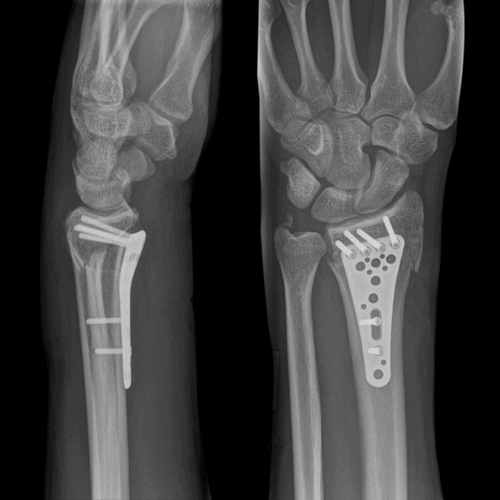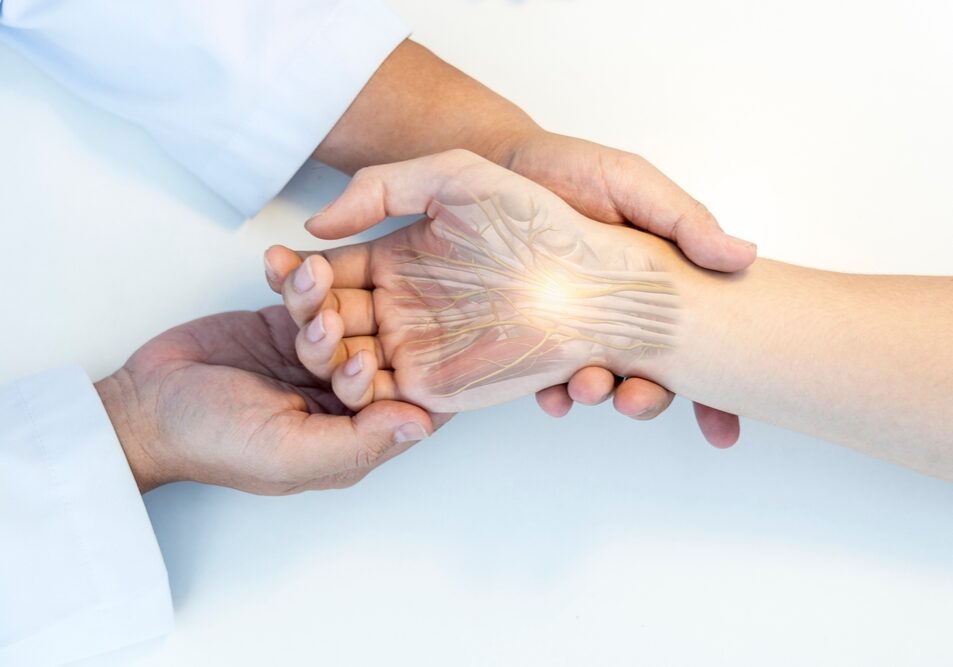An evaluation of wrist and forearm range of motion during purposeful activities and exercises for distal radius fracture
Filed under Reviews
An evaluation of wrist and forearm movement during purposeful activities and range of movement exercises after surgical repair of a distal radius fracture: A randomized crossover study
Collis, J., Mayland, E., Wright-St Clair, V., Rashid, U., Kayes, N., & Signal, N. 2022. An evaluation of wrist and forearm movement during purposeful activities and range of movement exercises after surgical repair of a distal radius fracture: A randomized crossover study, Journal of Hand Therapy, https://doi.org/10.1016/j.jht.2022.07.009
The Skinny
This study investigated how range of motion exercises compared to purposeful activities impact rehabilitation of postoperative distal radius fractures and the movement patterns of the wrist each of the interventions produces.

In the Weeds
Thirty-five adults with a surgical repair of a distal radius fracture participated in two ten-minute intervention sessions, including range of motion exercises and meaningful activities that each participant chose the previous day. Electrogoniometers were used to measure four different movement patterns of the wrist during the interventions. These included accumulated joint position over time, maximum active end range, numbers of repetitions, and excursions beyond 75% of available ROM and percentage of active movement time.

Bringing it Home
The purposeful activities required more repetitions, time of movement, and range of movement when compared to range of motion exercises only. The range of motion exercises was significant in providing more accumulation of joint position and end range of movement with supination. These findings suggest that along with other psychosocial benefits of purposeful activities used as therapeutic interventions, these activities also require the affected wrist to move in greater ranges of motion for a longer amount of time, which increases the repetition of wrist movement. This is important for the beginning phases of postoperative rehabilitation for distal radius fractures.
Rating
⅘
Due to the study’s small sample size, the evidence cannot be generalizable. However, this study provided helpful insight for hand therapists to incorporate purposeful and meaningful activities into treatment for the commonly seen diagnosis of distal radius fractures. This article also encourages more research to be done regarding purposeful activities in hand therapy practice.
More To Read
Hand Pain in Pregnancy and the New Parent
By: Rachel Reed The transition to parenting can be difficult on a mother or parent’s body, especially when considering the increase in repetitive hand use required to care for a baby. The most common upper extremity conditions that develop during pregnancy and postpartum are carpal tunnel syndrome and de Quervain’s tenosynovitis (Wagner, 2019). Frequently, new…
Read MorePillar Pain After Carpal Tunnel Release Surgery
Pillar Pain After Carpal Tunnel Release Surgery Carpal tunnel release (CTR) surgery is a common procedure, with the majority of patients experiencing satisfaction with its outcomes. However, for some individuals, a temporary complication known as “pillar pain” may arise, affecting approximately 13% of those undergoing CTR. Pillar pain manifests in the thenar eminence and hypothenar…
Read MoreWhat? I just received an order for suture removal…
How many of us have practiced suture removal in occupational or physical therapy school?? NOT I!! Often, hand surgeons will ask the therapist to remove sutures and sometimes the order will even say “remove sutures when ready” SO NOW WHAT? How to remove continuous sutures? First, we can cover the basics of sutures! There are…
Read MoreSign-up to Get Updates Straight to Your Inbox!
Sign up with us and we will send you regular blog posts on everything hand therapy, notices every time we upload new videos and tutorials, along with handout, protocols, and other useful information.





